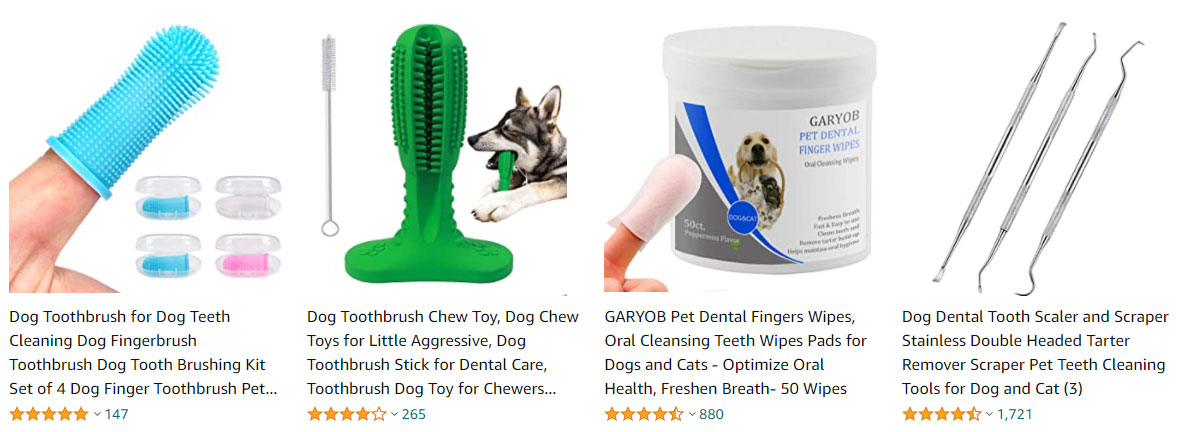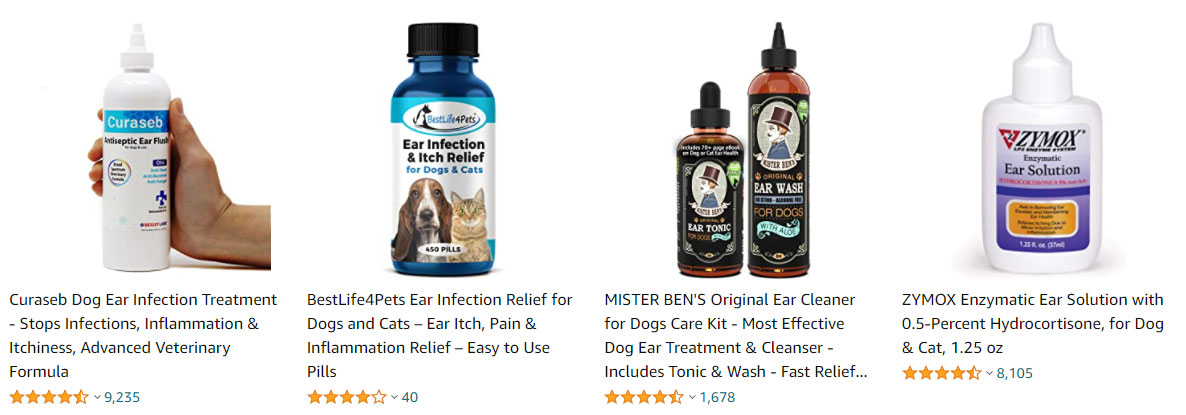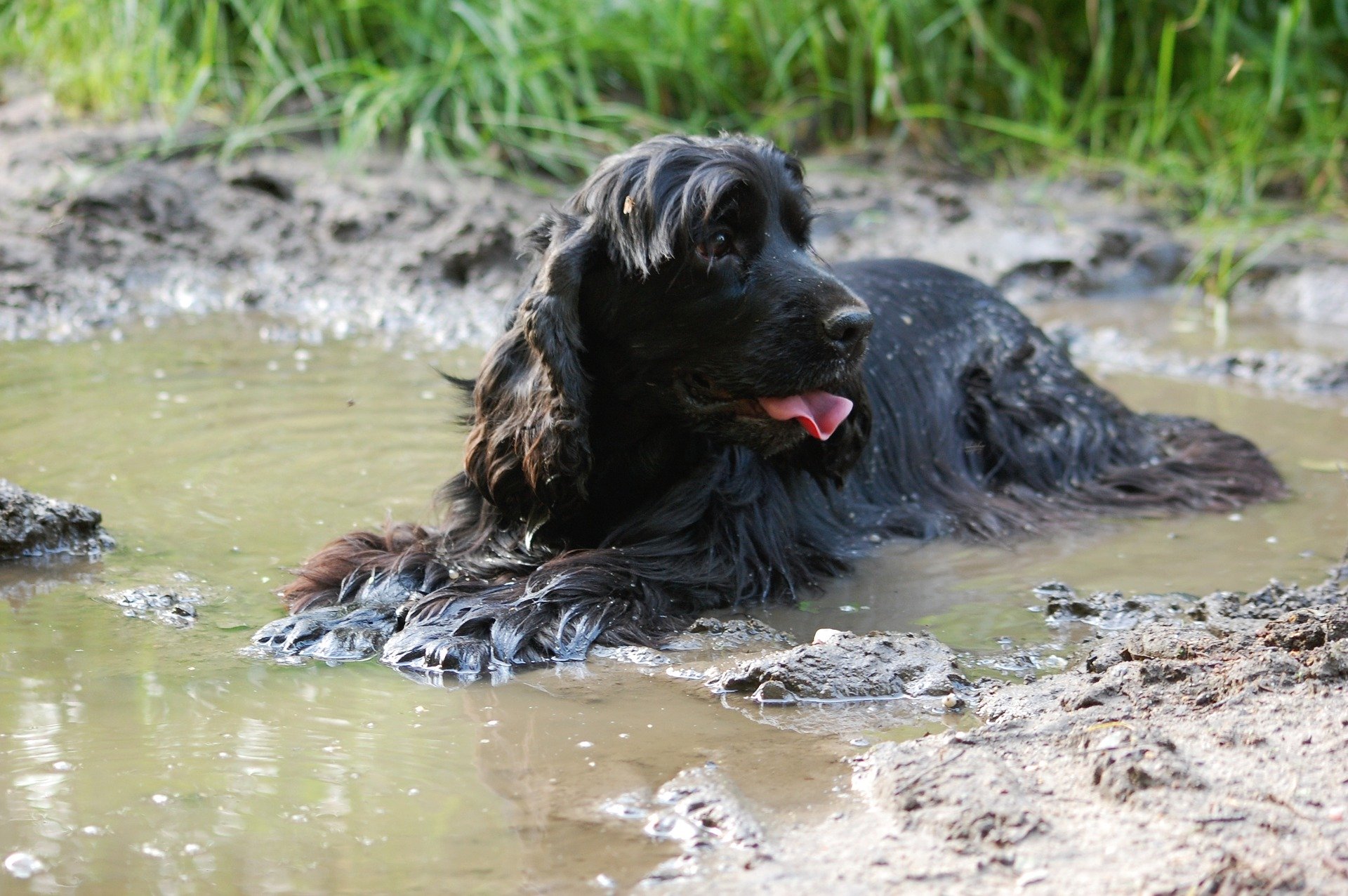My dog smell bad
It is common knowledge that our dog friends often smell bad, especially because they like to roll around in anything that has a strong smell.
Nevertheless, a healthy dog does not normally give off an unbearable odor, unless he has just rolled enthusiastically on a carrion or in a nice poop, as he likes to do so much. To solve the problem of a dog with a strong odor for no apparent reason, it is important to first determine the source of the odor.
My dog has bad breath
Dogs often have bad breath, but when it becomes really stinky, there's probably a problem. Dogs are particularly susceptible to tartar and the periodontal disease that comes with it, which causes particularly unpleasant breath.
Tartar is formed from calcified dental plaque that covers your pet's teeth and harbors a good number of bacteria. In addition to the putrid smell that these bacteria give off, they can also cause infections and inflammations that are sometimes benign, but often very serious and capable of spreading throughout your pet's entire body.
When tartar proliferates too much, the bacteria will cause the gums to detach and attack the jawbone of the animal, causing the teeth to fall out and spreading in the blood of the dog to other organs. Usually, an "abrasive" food such as kibble or dental chews will help maintain your dog's teeth, but sometimes this is not enough.
If your dog has bad breath, start by checking the condition of his teeth or, better yet, have them checked by a health care professional who will, if necessary, perform a scaling to fix the problem. While tartar is the most common cause of bad breath, your dog may also have an unpleasant odor due to other dental or digestive problems.
For example, dental abscesses can cause bad breath, as can kidney problems and certain bacteria growing in the dog's digestive system. If your dog has bad breath, it's best to take him to a veterinarian who will either clean his teeth or investigate the cause of the foul odor if there is no tartar.

My dog has flatulence
Flatulence is normal in dogs as in humans, and nothing can prevent it from happening by accident. However, dog flatulence is usually not very odorous, and a consistent foul odor when your dog farts should alert you.
The most likely cause of odorous flatulence in dogs is their diet, which has been implicated in many other health problems in our canine friends. Foods that are too high in carbohydrates, as well as certain fibers that are not well adapted to the canine body, are often poorly digested by dogs.
These nutrients tend to ferment in your dog's intestines, producing putrid odors that are very annoying to those around him. The same goes for fatty foods that produce very strong odors, as well as proteins of vegetable origin.
Poor quality proteins, rich in collagen (tendons, cartilage, etc.) are also less digestible and tend to putrefy in the dog's intestine. All of these ingredients are found in low quality foods sold in supermarkets, online and in some pet stores.
Whether your dog has flatulence or not, I recommend that you avoid them like the plague, because they cause many other health problems in our companions. Also, the fact that a dog you know digests certain low-end foods well doesn't mean that they're innocent of flatulence in your dog: your dog may simply have a more sensitive digestive system.
It's also important to note that sudden changes in diet can cause unpleasant gas, but this should only last for the duration of the transition. In addition, many gastrointestinal diseases of viral, bacterial or parasitic origin can cause this type of disorder.
Obesity and age, which cause the digestive system to slow down, are also factors that can be involved in the emission of putrid intestinal gases, as are certain food supplements. Finally, it should be noted that some dogs fart more than others, because they swallow too much air while eating, as is the case with gluttons who throw themselves on their food and brachycephalic dogs.
In this case, you should opt for a system that regulates the speed of food ingestion, such as the famous and very effective Pipolino, or, with the approval of your veterinarian, for a raised bowl. Moreover, the formation of gas can irritate your dog's intestine, which may become less permeable, resulting in less efficient digestion and increased gas production... A real vicious circle!

My dog's skin smells bad
If your dog seems to smell bad all over, it's possible that the unpleasant odor is due to skin problems. Usually, these are visible and accompanied by various symptoms such as puritus (itching), alopecia (peeling), or even the formation of scabs, pimples, redness or dandruff.
In fact, if your dog's body odor is particularly strong, I recommend that you inspect him thoroughly for localized skin abnormalities. Primary seborrhea is a hereditary disease that manifests itself by an oily and smelly skin, as well as by the appearance of small pimples, scales and scabs, regularly associated with superinfections.
Other seborrhea (seborrhea being an excessive production of sebum) is caused by fungus, hormonal disorders or diseases. An abscess or a purulent wound can also give off an extremely disturbing odor, the pus having a particularly strong typical smell.

My dog's head smells
Dogs, especially those with floppy ears, frequently develop ear infections, a disease of the ears that can give off an unpleasant odor. Ear scabies, caused by a parasite, is also a condition with a very unpleasant odor that can alert you.
It is relatively easy to suspect one of these diseases: in the case of an ear infection, the dog scratches, is often in pain and will not let you touch his ears. However, if you manage to take a look into his ear canal, you will see an inflamed (red) ear and an excess of earwax.
In the case of ear mange, the dog scratches a lot, his ears are red and covered with excess dark earwax, his ear hairs are sparse and crusts often form on the auricle. In both cases, you should consult a veterinarian to have your pet treated before the symptoms worsen, risking deterioration of his hearing.

My dog's hindquarters smell
A dog with a strong back odor is most often subject to inflammation of the anal glands, cavities located around his anus. These small glands, also known as anal sacs, contain a fluid that allows the animal to mark its territory when relieving itself.
In some cases, these glands can become engorged and give off a foul odor (similar to that of fish), as well as bothering the dog, who will tend to lick himself more than usual and do the "sledding". This condition is not serious, although it can eventually lead to a more serious superinfection.
It is mostly embarrassing for the owner, but can also become so for the dog when the engorged glands become painful. In any case, if your dog shows symptoms of anal sac engorgement or has a strong odor in his hindquarters for no apparent reason, I recommend that you consult a veterinarian.
My dog gets dirty all the time
Some dogs like more than others to roll in smelly materials during walks with their master. This behavior is not reprehensible and must simply be accepted by the owner... Despite the bad odors that may result from it.
In fact, the only solution is to wash your dog regularly, but be careful: this operation must be carried out according to the rules of art. First of all, it is not recommended to wash your dog too often, except on the recommendation of your veterinarian who can prescribe you a special shampoo to regulate the production of sebum, especially for dogs suffering from primary seborrhea.
In other cases, it's best not to wash your dog more than once a month, and you should definitely use a shampoo designed for dogs. Shampoos and soaps designed for humans, as well as overly frequent bathing, can damage your dog's skin, making it more prone to damage and fungus, which causes unpleasant odors.
By using an adapted product, a monthly bath will on the other hand allow your dog's fur to be thoroughly cleaned, to let his skin breathe... And to destroy the odors that have been sticking to his coat since he rolled who knows where! All dogs have a tendency to smell a bit strong, but really disturbing odors are usually a symptom of an underlying disease that only a veterinarian can diagnose and treat.
So, if your pooch is suffering from bad breath or seborrhea, I recommend that you consult a veterinarian before deciding to brush or bathe your dog without knowing the true source of the unpleasant odor. Don't neglect the importance of your dog's diet on the health of his skin, coat, teeth, intestines... and his entire body and mental balance.

